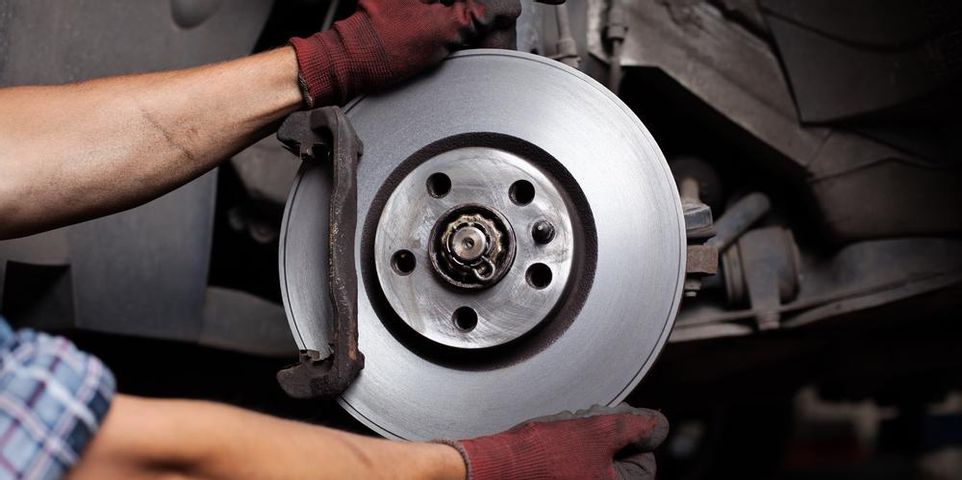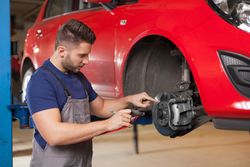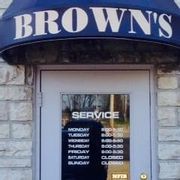Brake Repair Shop Explains When to Repair Vs. Replace Your Rotors

The brakes are your vehicle's most important safety system, so it's essential that you maintain them properly and schedule brake repairs when something is amiss. For instance, when your rotors—the discs that brake pads clamp to cause friction and slow the car—wear down, they should be replaced or resurfaced. Below, Brown's Transmission in Newark, OH, explains when each course of action is most appropriate. This information should help you keep your brakes in good shape and your car operating safely.
When to Repair Your Brake Rotors
Rotor repair involves "turning" them on a metal grinder to remove scratches and corrosion and smooth out uneven wear patterns. Thus, the factors that determine rotor quality are the thickness of the rotor metal, the evenness of the wear, the amount of corrosion, and the rotor's ability to absorb or dissipate heat without warping. When the rotors are thick enough to easily accommodate a few passes with a metal grinder, brake repair makes more sense than replacement.
 When to Replace Your Brake Rotors
When to Replace Your Brake Rotors
If the rotor is severely worn or deeply corroded, repairs might require grinding it down to a thinness where the pads cannot clamp down completely, making braking uncertain and unsafe. Moreover, such thin rotors cannot absorb the heat of friction well and could warp, causing further problems. If your rotors contain deep scratches or have already been turned one or more times, the safest option is usually to replace them.
If you hear squealing or grinding when you stop, or if your brakes are losing responsiveness, it's important you schedule brake repair immediately. Contact Brown's Transmission in Newark, OH, for an inspection. In addition to expert brake and transmission service, they also perform oil changes, tire alignments, and many other auto repairs. Visit their Facebook page to view a map and business hours, and call (740) 522-4459 or visit them online to schedule service.
About the Business
Have a question? Ask the experts!
Send your question

